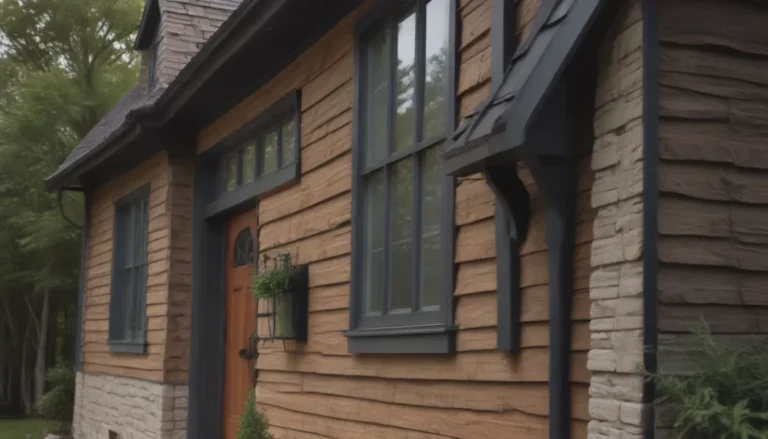The Ultimate Guide on How to Hire and Manage a Contractor

So, you’ve finally admitted that you can’t do it all yourself and need to hire a contractor to fix something in your home. Don’t worry, we’ve all been there. Whether it’s a major renovation project or just a simple repair, hiring a contractor can be a daunting task. But fear not, because we’ve got you covered with this comprehensive guide on how to hire and manage a contractor effectively.
Types of Home Repair Contractors
When it comes to hiring a contractor, it’s essential to know the different types available. Here are the main types you may encounter:
- General Contractor (GC): The overall coordinator of a project who hires specialty subcontractors.
- Subcontractors: Specialized tradesmen who focus on specific aspects of a project, such as plumbing or electrical work.
Types of Subcontractors
When it comes to specific repairs or tasks in your home, you’ll need to hire a specialist subcontractor. Here are some common types of subcontractors you may need for your projects:
- Excavation
- Concrete
- Framing
- Roofing
- Plumbing
- HVAC
- Electrical
- Finish Carpentry
- Drywall
- Painting
- Flooring
Each subcontractor plays a crucial role in ensuring the success of your home repair or renovation project.
Licensed Contractor vs. Handyman
While handyman services may seem like a quick and easy solution, it’s crucial to hire a licensed contractor for any significant repairs or projects. A licensed contractor provides legal protection and ensures that the work is done correctly and up to code.
General Contractor’s Role
When you hire a general contractor, they take on the responsibility of managing subcontractors and overseeing the project. Here are some key points to consider when working with a general contractor:
- The GC handles subcontractor contracts and payments.
- They provide supervision and scheduling of the project.
- They handle permits, insurance, and other necessary details.
Tip
While you may be tempted to act as your general contractor, hiring a GC can save you time and ensure a smoother project completion.
Deciding When to Use a Contractor
Knowing when to hire a contractor can be challenging. Here are some factors to consider:
Your Comfort Level With the Task at Hand
Evaluate your comfort level with the project and determine if you have the skills and expertise to complete it yourself.
Your Time
Consider how much time you have available to dedicate to the project. Hiring a contractor can save you valuable time.
Your Budget
Assess your budget and determine if hiring a contractor fits within your financial constraints.
If you’re unsure about any of these factors, it may be best to hire a contractor for the job.
Permit Requirements
For more complex projects or new installations, you may need permits from your local building department. Be sure to check the permit requirements before starting any work.
Tips for Hiring the Right Contractor
Choosing the right contractor is crucial for the success of your project. Here are some tips to help you find the perfect contractor for your needs:
Check Their Past Work
Research potential contractors and look for reviews and testimonials from past clients. Personal recommendations are also valuable in finding a reputable contractor.
Get Multiple Estimates
Obtain estimates from several contractors to compare prices and services. Be sure to review the scope of work in each estimate to ensure it aligns with your needs.
What Is the Scope of Work?
Review the scope of work provided by each contractor to understand what is included in their bid. Ask questions about any assumptions or exclusions to avoid surprises later on.
What Is a Change Order?
Understand what a change order is and when it may be reasonable to request one from the contractor. Clear communication is essential in managing change orders effectively.
Check Their License, Insurance, and Bonding
Verify that the contractor is licensed, insured, and bonded before hiring them. This ensures that they meet the necessary requirements and safeguards you from liability issues.
Discuss Payment Options
Agree on payment terms with the contractor and ensure that everything is outlined clearly in the contract. Avoid paying a significant amount upfront and be wary of cash-only arrangements.
Don’t Rush Into a Decision
Take your time in selecting a contractor and don’t feel pressured to make a quick decision. Review the contract thoroughly and ensure that all terms are agreed upon before proceeding.
Questions to Ask a Potential Contractor
Ask the following questions to assess the contractor’s suitability for your project:
- Experience: How long have you been in business?
- References: Can you provide references from past clients?
- Stability: Are you financially stable and established in the industry?
Evaluate each contractor’s responses to these questions to make an informed decision.
Tips to Effectively Manage a Contractor
Once you’ve hired a contractor, it’s essential to know how to manage their work effectively. Here are some tips to help you navigate the process:
Establish the Working Relationship Before the Job Begins
Define expectations with the contractor before work commences to ensure a clear understanding of the project scope. Written agreements are essential for avoiding misunderstandings later on.
Be Organized and Observant Once the Job Begins
Allow the contractor to work efficiently and avoid unnecessary interference. Maintain a job file with all relevant documents and communicate openly with the contractor throughout the project.
Review the Work Once the Job Is Complete
Inspect the completed work before making the final payment to the contractor. Ensure that the job site is clean and that the work meets your expectations before signing off on the project.
Conclusion
Hiring and managing a contractor can seem overwhelming, but with the right approach, you can ensure a successful project outcome. By following the tips and guidelines outlined in this guide, you’ll be well-equipped to navigate the contractor hiring process with confidence. Remember, communication and clarity are key to a successful contractor-client relationship. Good luck with your home repair or renovation project!





